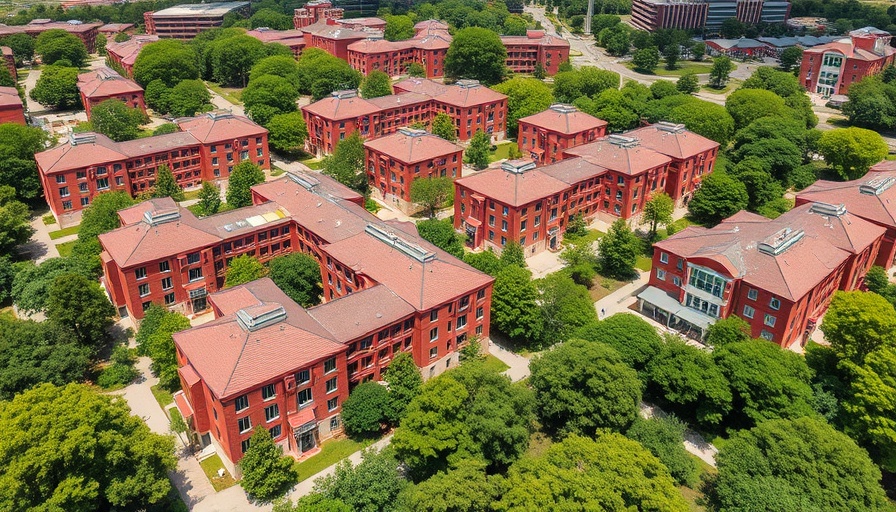
Unprecedented Changes for International Students in Michigan
The Trump administration has made a controversial decision that significantly impacts international students attending Central Michigan University (CMU) and the University of Michigan (U-M). Without warning, several students from these institutions had their legal residency status revoked, leaving them in a state of uncertainty. This sudden action raises questions not only about the immigration policies in place but also about the future of international students in Michigan.
Why the Silence? Experts Demand Answers
University officials revealed that the Department of Homeland Security (DHS) did not provide any rationale for this drastic measure, a situation described by CMU spokesperson Ari Harris as "alarming". The lack of communication from federal officials leaves students and university administrators scrambling to understand the implications of these changes. The universities are now trying to reach out to affected students, who are left to choose between leaving the country or reapplying for permission to stay.
Wider Impacts on Higher Education
This disruption is not limited to CMU and U-M; it raises concerns about how many other Michigan schools might be similarly affected. Throughout the state, universities depend on a diverse student body to enrich the learning environment and contribute to local economies. Many international students are vital to academic programs and represent significant investments in education. Their sudden removal could disrupt both educational integrity and community diversity.
The Emotional Toll on Students
The emotional and psychological effects of this policy change on students cannot be overlooked. For many, studying abroad is a dream that involves years of planning, financial sacrifices, and familial support. The stress of losing legal residency status adds an unforeseen burden to their educational journey. Students now face anxiety about their future, academic progression, and potential deportation.
Community Reactions: Support and Solidarity
Reactions from the local communities have been mixed, but there is a clear sense of solidarity among students and faculty who advocate for their international peers. Many organizations are rallying to support affected students, emphasizing the importance of inclusiveness in educational settings and the cultural contributions these individuals provide. Educational leaders are calling for clarity from the DHS while expressing their commitment to advocate for their students.
What Comes Next? The Path Forward for International Students
As the situation evolves, it remains crucial for stakeholders, including local politicians and educational institutions, to engage in dialogue with the federal government. Advocating for international students' rights and clarity in immigration policy is more important now than ever. The challenges they face underscore a larger conversation about the significance of diverse voices in academia. Without decisive action, the future of international education in Michigan could be at stake, along with the aspirations and dreams of countless students.
 Add Row
Add Row  Add
Add 




 Add Row
Add Row  Add
Add 

Write A Comment